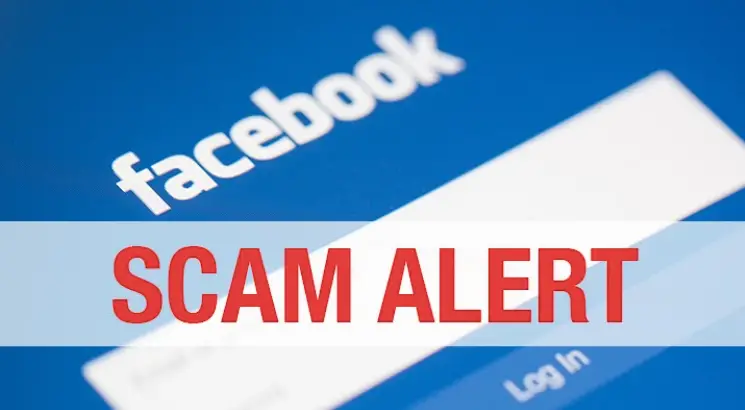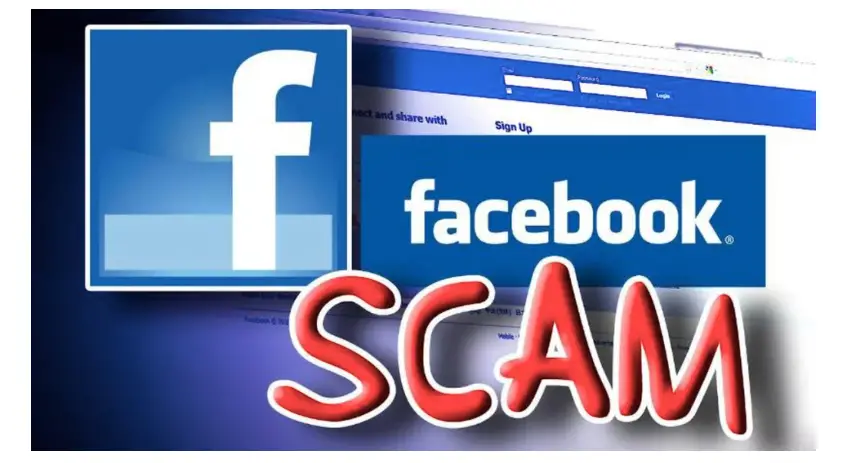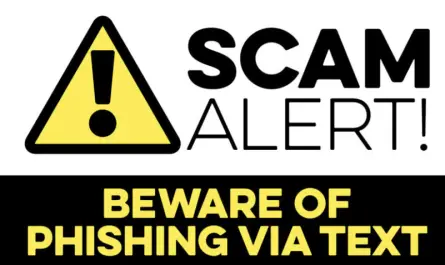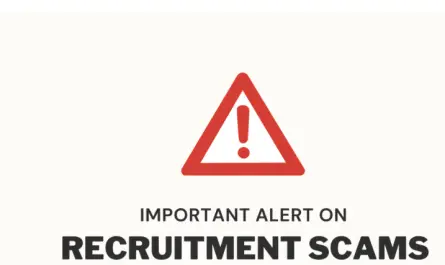Many Facebook users have fallen victim of the Facebook Copyright Scam, which happens to be one of the latest tactics used by scammers on Facebook. Did you receive any copyright infringement notice threatening to block your page unless you take action immediately and you wish to confirm whether it is real? If yes, then you are at the right place.
Unfortunately, we have carried out our investigation and found out that it is a huge scam. Do not click on any of those links in the email. This review uncovers the fraudulent activities of this scammers and offers tips on how to detect scam texts and avoid them. Read till the end.
Phishing (Email scams) and Smishing (Fraud through Text messages) are on the increase these days. Scammers are now coming up with several ways to defraud people on a daily basis. One of the ways they do this is by sending text messages to people prompting them to release vital information or even gaining access to their information without their knowledge. Receivers of such texts are therefore advised to always carry out due diligence before giving out any information about themselves.
An Overview Of Facebook Copyright Scam.
Facebook Copyright Scam is an email or Facebook message sent by fraudsters mimicking the real email sent by Facebook. These hackers sends fake copyright infringement notices to Facebook users to steal their credentials. The fake notice claims that a photo uploaded to the account’s page violates Facebook’s copyright infringement policy and that you have 24 hours to restore your page. They also attach a link with which to provide relevant information about you. Do not fall for it.
How Does Facebook Copyright Scam Work?
In order to appear genuine, the cyber criminals behind the Facebook Copyright Scam employ different strategies. This includes trying to convince people that their account has been suspended because an activity on it doesn’t follow the community standards. It went on to say that your account will be permanently disabled if after 24 hours, you were not able to make an appeal by clicking on the link sent.
They make it look so real and urgent so that their victims will click on the link attached in the text immediately without giving it a second thought. Unfortunately, the link they attach to the message leads to a website that is not even Facebook related. Once they click on it, their personal details will be collected by these scammers.

What Are The Effects Of This Phishing Scam On The Receivers?
The negative effects that Facebook Copyright Scam message has had on people who fell victim of their tricks unknowingly is really alarming. People lost huge amount of money because these scammers gained access to their bank details and stole from them. Some even started borrowing to pay back the money hackers stole from their Facebook friends whom they defrauded using the hacked account.
These and may more stories, prompted us to start educating the public about this fast rising phishing scam known as Facebook Copyright Scam as well as other methods used by scammers these days.
How To Detect Facebook Copyright Scam Message Or Email.
Below are some of the ways you can identify the Facebook Copyright Scam.
- They make the text sound urgent and give penalty for those who default. This is to make the receiver do what they said.
- They disguise to be a reputable agency, steal the agency’s official logo and address just to convince people.
- They send links to malicious sites to get your personal information and steal from you.
- There are usually errors in their email address or the content of the mail or text.
- Majority of them only make use of text messages and chats.
6 Ways To Avoid Being Scammed By These Fraudsters.
In order not to be a victim of the Facebook Copyright Scam or any other fake agency, follow these instructions:
- Do not click on any link or download attachment from an unknown sender: Do not be in a hurry to click on any link sent in a mail or text message from someone you do not know.
- Check the URL of the links they sent: Is there is an error in the URL or even the content of the text message like misspelling or omission, then know it is a scam.
- Carry out your investigation: Before clicking on any link, do a research to know if they are actually it is actually coming from the said organization. This will save you a lot.
- Do not disclose your personal information anyhow: Avoid login in to your Facebook account through any link sent to you.
- Follow your instinct: Whenever you come across a suspicious text message, it always safe to pay attention to the details in the message to check for any suspicious activities rather than being carried away by their urgent tone.
- Report suspicious email or text messages: As soon as you discover a fraudulent text or email, report to your local enforcement agency so that they will take actions to stop further scam activities. If you have already shared your personal or financial information with these scammers, all you just have to do is to shut down your cards, then report the incident.
- Tell others about the Facebook Copyright Scam: Enlighten your friends and family member about the ongoing scam so that they will be aware and not fall victim.
Conclusion
People should be cautious of the information they give out about themselves. There are many scammers out there targeting unsuspecting Facebook users. Sadly, Facebook Copyright Scam is one of the viral scams over the internet recently just like the Facebook protect scam. To stay safe from these fraudsters, you have to adhere to the instructions given above. Click Here to see a list of phishing scams to avoid. Other phishing scams we have reviewed are Apple Locked ID Scam and Etsy Verification Scam Text




